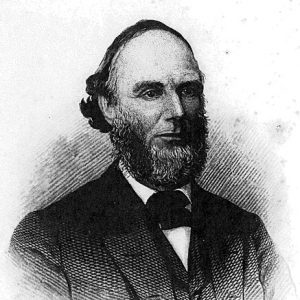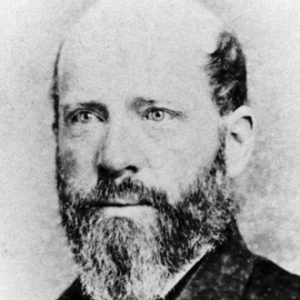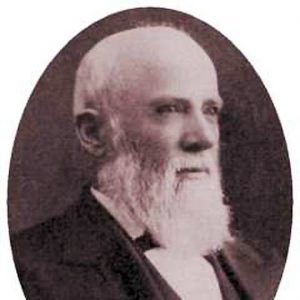calsfoundation@cals.org
Arkansas College
Arkansas College was founded in Fayetteville (Washington County) in late 1850 by pastor Robert Graham of the Disciples of Christ. On December 14, 1852, the Arkansas General Assembly approved an act allowing the college “to confer the degree of Doctor…and other academical degrees,” making it the first degree-conferring institution chartered by the state to open.
Graham was born in Liverpool, England, on August 14, 1822, but later moved to the United States. He apprenticed as a carpenter in Allegheny, Pennsylvania, and after indenture went to Bethany, Virginia (now in West Virginia), to help construct buildings at Bethany College, a Disciples of Christ school that Graham then attended. Upon graduation, he accepted a mission from the college to travel among Disciples followers living in the Southwest, spending a significant amount of time in Arkansas and reporting the status of the followers back to the college.
After visiting Little Rock (Pulaski County) and Batesville (Independence County), Graham organized a Disciples of Christ congregation in Fayetteville in 1848 and became its pastor. To supplement his income, he taught school at the Ozark Institute near Mount Comfort (Washington County) for two years but left that position to start a male academy in Fayetteville to be called Arkansas College. Classes initially met in an existing residence at the corner of Dickson Street and St. Charles Avenue, but Graham had bigger plans. In late 1851, he bought from William McGarrah ten acres of land, fronting the east side of present-day College Avenue and extending from Dickson Street to Spring Street. Today, the Washington County Courthouse and the First Christian Church cover most of this property.
In a history of the college, Nathaniel Ragland quoted Graham as saying: “The erection of the main building was begun immediately. It was large and elegant. Later two wings and a library room were added, making it one of the most complete colleges in the state.”
From its beginning, Arkansas College attracted students from across the frontier portions of Arkansas, Missouri, Texas, and the Indian Territory (present-day Oklahoma), as well as several students as far away as England. At its height, the college enrolled about 200 students per year. The college awarded its first seven bachelor’s degrees in 1854.
In 1859, Graham joined the faculty of Kentucky University at Harrodsburg, Kentucky. William Baxter, a professor at Newton College in Woodville, Mississippi, was hired as the second president of Arkansas College.
After a year in Kentucky, Graham returned to Fayetteville, aiding Baxter in teaching. Their efforts were cut short during the spring of 1861 when Arkansas voted to secede from the Union. Students from Arkansas College withdrew by early summer to form regiments, and Fayetteville became a forward post for the Confederate army. Just prior to the Battle of Pea Ridge, however, Confederate troops withdrew from the city because of advancing Union troops. Many of the buildings that had been used for storage of military supplies or were deemed to have military importance were burned by the Confederates. The main college survived this initial burning but was destroyed when Confederate troops that were headed back north to the Battle of Pea Ridge set fire to the college’s buildings on March 4, 1862. Pro-Union sentiments of the college founders and many of the church members may also have contributed to the decision by the Confederates to burn the campus.
Although the college came to an end, the pride that Fayetteville residents felt for Arkansas College proved to be a catalyst when the city successfully bid in 1871 to be the site of the state’s first public institution of higher learning, Arkansas Industrial University, later renamed the University of Arkansas (UA).
For additional information:
Baxter, William. Pea Ridge and Prairie Grove; or Scenes and Incidents of the War in Arkansas. Cincinnati, OH: Poe and Hitchcock, 1864.
Campbell, William Simeon. One Hundred Years of Fayetteville, 1828–1928. Fayetteville, AR: Washington County Historical Society, 1977.
Donat, Pat. “Arkansas College: The Beginning.” Flashback 27 (August 1977): 1–8.
Ragland, N. M. “The Arkansas College.” Unpublished manuscript. Special Collections. University of Arkansas Libraries, Fayetteville, Arkansas.
Charles Y. Alison
University of Arkansas, Fayetteville

 Arkansas College
Arkansas College  William Baxter
William Baxter  Robert Graham
Robert Graham  Robert Graham
Robert Graham 



Comments
No comments on this entry yet.